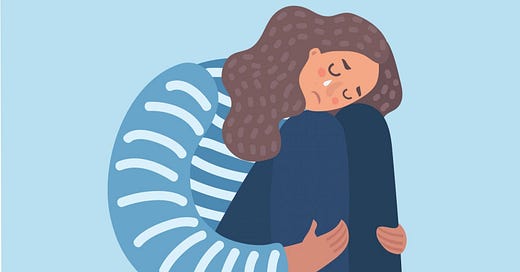😟 Fear of happiness is real; here's how you can control it.
It's not really the happiness itself that many want to avoid, it's what follows.
Without even realizing it, a lot of people limit themselves from partaking in exciting experiences because they believe that it will bring them more harm than good. When this happens frequently and intensely, it can transform into full-on Cherophobia.
Some people might not have this condition to the point of it being clinically debilitating, but tiptoeing around joy definitely will rob you from reaping benefits such as creating new connections, improving your mental health, and more.
How cherophobia is formed
Breaking down the term itself, Cherophobia is derived from the Greek words “Chiaro” which means ‘to rejoice’, and “Phobia” which means ‘to fear’. It is mostly guided by the thought that something will always take away from your happiness.
Many factors can cause Cherophobia, the most common include:
Sabotage. You believe strongly that something will happen to sabotage your happiness, every time you feel joy. This then makes you think that you would rather live without excitement than to have to deal with the pain.
Guilt. With everything bad that’s going on in the world, you feel wrong for feeling happy. Especially when those suffering are close to you, you tend to suppress positive feelings around them, including happiness.
Foes. Jealousy is a green-eyed monster that Cherophobics will try to avoid at all costs. You’re scared that if you express happiness, it will turn friends into foes as some people might not be happy with your success.
Selfishness. If you were to pursue the thing that makes you happy, you’re afraid that people would label you as selfish. A lot of people unfortunately might think that that’s a self-centered act, and you can’t help but to focus on those people.
Please keep in mind that Cherophobia can only be diagnosed by a professional. If you identify with any of the reasonings above, it would be helpful to reach out to a professional in discuss it further.
Learn more about why you could have the fear of happiness in the full article here.
People who might be susceptible
Personality plays a huge role in whether or not you might struggle with the fear of happiness. More specifically, there are certain key qualities, which are proven by several studies, that could make you more prone to this phobia.
Introversion
If someone experiences an event that sparks cherophobia and they happen to be introverted, their tendencies to shy away from social gatherings and spend time by themselves can sometimes encourage the fear of happiness to grow.
Perfectionism
Someone who is always striving to be a better version of themselves may equate happiness as complacency. For them, if they’re happy then they don’t need to micromanage their existence anymore, which takes away their sense of self.
Withdrawal
A research suggests that withdrawing socially supports the idea in someone’s mind that being social will only lead to disappointment or loneliness in the end, causing more isolation or a fear of happiness during fun activities.
Agreeableness
Agreeableness is defined as a person’s ability to put other people’s needs above their own. When it comes to cherophobia, someone who is very agreeable has a hard time being happy as they are always focused on other people’s happiness.
Read more about who might be vulnerable to experiencing cherophobia here.
Bumping down the scale
In 2012, Gilbert and colleagues came up with their version of the Fear of Happiness scale. This measurement is aimed to explore people’s perceptions and anxieties around feeling happy and positive feelings in general.
Participants are asked to rate (from 0 —‘Not at all like me’, to 4 —‘Extremely like me’) the extent to which they agree with the following statements:
I am frightened to let myself become too happy.
I find it difficult to trust positive feelings.
Good feelings never last.
I feel I don’t deserve to be happy.
Feeling good makes me uncomfortable.
I don’t let myself get too excited about positive things or achievements.
When you are happy, you can never be sure that something will not hit you out of the blue.
I worry that if I feel good, something bad could happen.
If you feel good, you let your guard down.
With a total score ranging from 0 to 36, higher scores indicate a greater fear of happiness. If you’re somewhere on the higher scores, you could balance out the scale by trying out the following methods:
Cognitive behavioral therapy
Research indicates that Cognitive Behavioral Therapy (CBT) is a highly effective treatment for anxiety disorders, which cherophobia has been categorized as.
Mindfulness
If you feel that your fear of happiness is less intense than a full-on phobia, you may try the following self-care routines:
Find more insightful information on how you can tackle cherophobia here.
On a scale of 0-36, where do you think you would land on the Fear of Happiness scale?
Hopefully, by reading through this week’s Monday Mavens edition, you will come out of this week on a lower side of the scale.
To keep you stocked with productivity insights, we will surely get back with another edition next Monday.
See you then!



